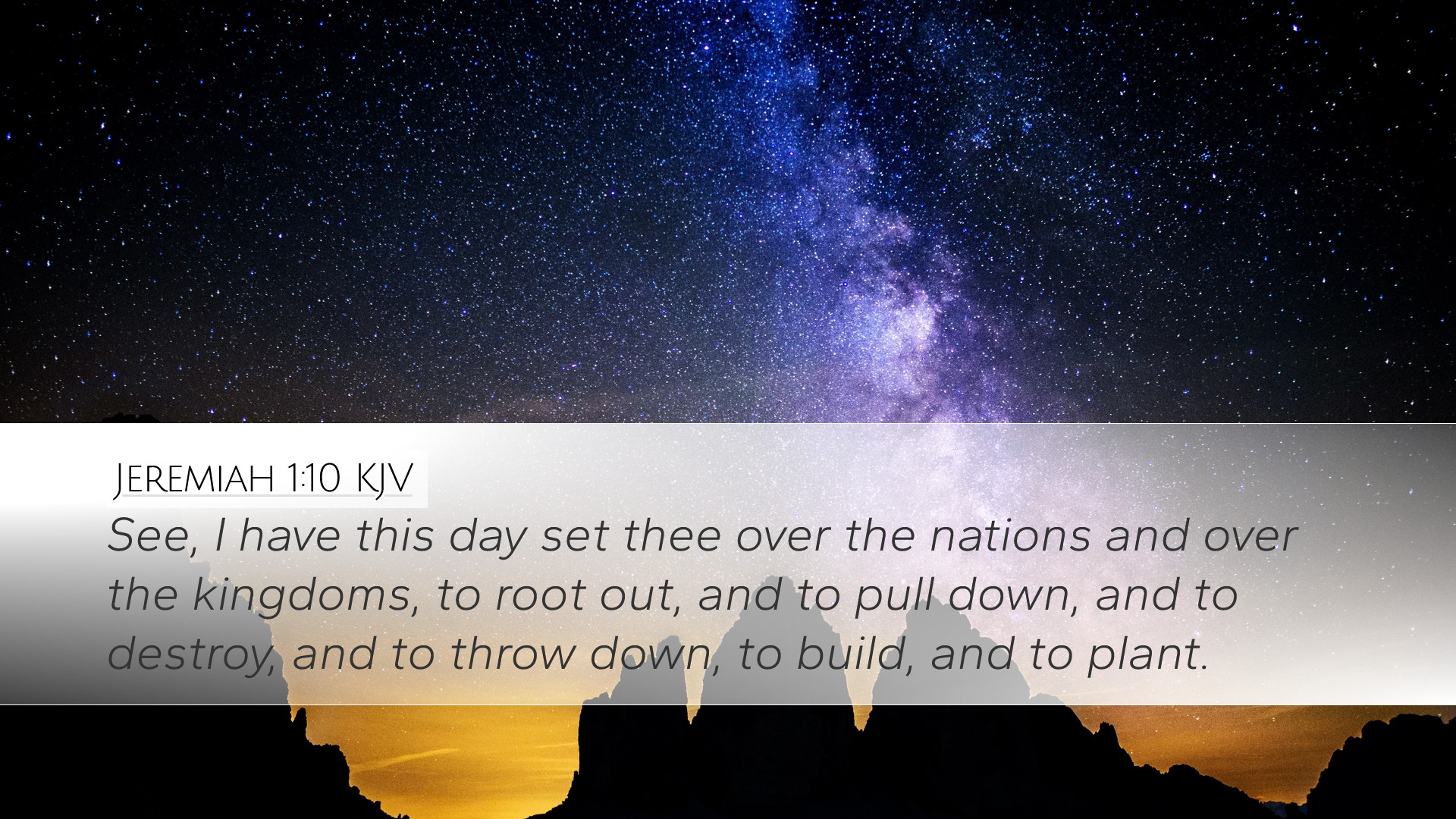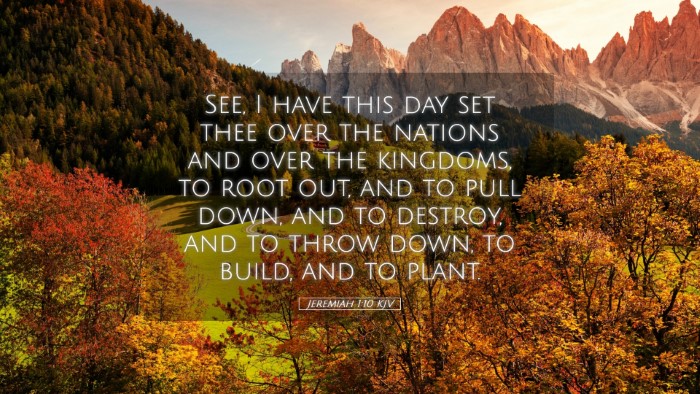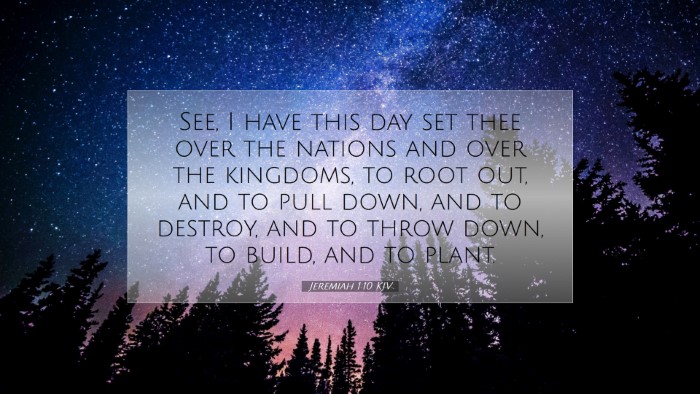Commentary on Jeremiah 1:10
Jeremiah 1:10 states: "See, I have set you this day over nations and over kingdoms, to pluck up and to break down, to destroy and to overthrow, to build and to plant." This verse is rich in theological significance and represents the divine commissioning of the prophet Jeremiah. The task assigned to him is monumental, involving both judgment and the promise of restoration.
Contextual Background
The call of Jeremiah comes in a time of historical turmoil as the Kingdom of Judah faces impending doom. Commentators agree that understanding this context is vital to grasping the urgency of his mission.
- Historical Setting: Jeremiah prophesied during the last days of the Kingdom of Judah, hinting at both imminent judgment and future restoration.
- Divine Commissioning: The call begins in Jeremiah 1:4-9, where God speaks directly to Jeremiah, establishing his purpose even before birth.
Theological Insights
This commissioning can be dissected into several theological themes:
- Authority of the Prophet: God grants Jeremiah authority over nations—a remarkable declaration that emphasizes the gravity of prophetic ministry. As Albert Barnes notes, it highlights the significant role of God's messengers in shaping nations' destinies.
- Judgment and Restoration: The dual tasks given—"to pluck up and to break down, to destroy and to overthrow, to build and to plant"—signify that the work of God involves both destruction and renewal. The prophetic ministry often entails a painful confrontation with sin, as also emphasized by Matthew Henry, who remarks that such tasks are necessary precursors to rebuilding and replanting.
- Covenant Themes: The act of “planting” can symbolize God’s covenant relationship with His people, indicating restoration and hope. Adam Clarke elaborates that this reflects the overarching narrative of God’s commitment to His people, where judgment serves a corrective purpose leading towards future grace.
Literary Structure and Implications
The poetic structure of Jeremiah’s call suggests a profound theological intention. The contrast between destruction and building emphasizes the holistic process of divine intervention.
- Prophetic Declaration: The use of imperative verbs signifies God's sovereign command; it is not a suggestion but a determined decree that outlines the prophetic vocation.
- Future Hope Contrasted with Present Judgment: While God announces judgment (plucking up and breaking down), it is coupled with a promise of future hope (building and planting). This mirrors the overall biblical narrative where judgment serves as a gateway to grace.
Application for Today
Pastors, students, and theologians can extract vital lessons from Jeremiah 1:10 for contemporary ministry:
- Embrace the Tension: Understanding the need for both judgment and grace in ministry encourages a balanced approach in preaching and teaching.
- The Role of Authority: Recognizing the authority granted to prophetic voices today challenges leaders to speak truth boldly, while also being stewards of God’s desire for redemption.
- Hope in Despair: The message of building and planting provides assurance that even amidst decline, God is working towards restoration.
Conclusion
In summary, Jeremiah 1:10 serves as a powerful reminder of the prophet's task—an interplay of destruction and restoration that reflects God's ultimate redemptive plan. The insights from historical, theological, and practical perspectives presented by commentators like Matthew Henry, Albert Barnes, and Adam Clarke provide enriching layers of meaning for readers, encouraging them to engage deeply with the text within its context and relevance to their spiritual walks today.


